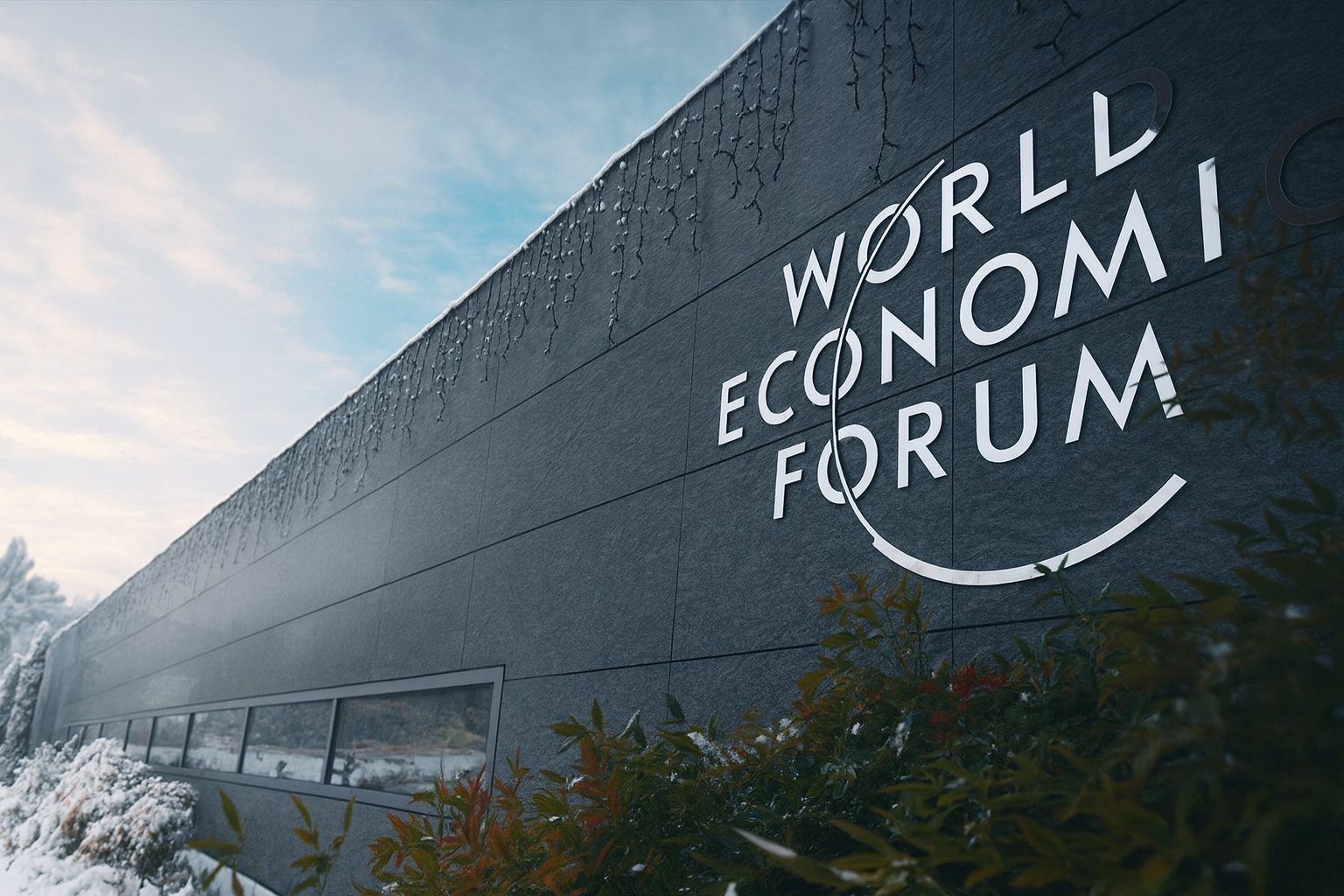Published 28 November 2025
The World Economic Forum (WEF) and Accenture have released a new white paper that could significantly reshape how companies view waste, workers and supply-chain visibility. Titled “Scaling Traceability Innovation to Unlock the Value of Informal Waste Management”, the paper sets out a practical playbook for turning today’s largely invisible informal waste systems into transparent, investable and socially responsible parts of global circular supply chains.1
Today’s publication of Sustainability Magazine’s feature on the guide, combined with fresh commentary from Procurement Magazine and Supply Chain Digital, brings the report squarely into the mainstream of supply-chain and sustainability discussions on 28 November 2025.Sustainability Magazine+2Supply Chain Digital+2 At the same time, WEF’s UpLink platform is promoting the findings as a roadmap for policymakers, investors and businesses confronted with an accelerating global waste crisis.2
Why traceability and informal waste now?
The WEF–Accenture paper starts from a stark reality: in many low‑income countries, around 93% of waste is still dumped or burned, with devastating environmental and health consequences.Sustainability Magazine+2Supply Chain Digital+2 Mismanaged waste is estimated to contribute to between 400,000 and one million deaths every year, while building effective waste systems across emerging markets could require investment on the order of US$680 billion.3
Yet, parallel to these failures is a largely unrecognised success story. Informal waste workers – often operating without contracts, social protection or basic safety equipment – recover an estimated 88 million tonnes of recyclables each year, more than many formal waste systems manage.3
The white paper argues that this vast informal ecosystem is not a marginal side-story to the circular economy – it is foundational to it. But because the work happens outside regulated supply chains, there is limited data on where materials originate, how they are handled or how workers are treated.1
For companies under growing pressure to verify recycled content, uphold human rights and reduce Scope 3 emissions, that opacity is no longer acceptable. According to the report, around 60% of companies see limited supply-chain visibility as a major risk, especially in waste management and recycling.3
Inside the new WEF–Accenture traceability playbook
The white paper, produced in collaboration with Accenture and the World Economic Forum’s Global Plastic Action Partnership, lays out a practical roadmap for scaling traceability in informal waste systems.1
1. Turning informal waste work into verified supply-chain steps
The report defines traceability as the ability to follow materials and labour conditions from the first point of collection through to processing, recycling and end use.1
It highlights a new generation of tools that can digitise each step, including:3
- Digital payment and collection apps that log who collected what, where and when, while paying workers directly.
- Blockchain and distributed ledgers to create tamper‑resistant records of material flows.
- AI‑enabled analytics to spot risks, detect anomalies, predict supply and optimise logistics.
- Digital product passports and waste passports that allow brands to prove the recycled origin and social performance of materials.
By embedding these tools in informal waste chains, the paper argues, companies can transform unverified scrap flows into traceable, auditable inputs for circular supply chains, while making workers’ contributions visible.
2. A decision framework for leaders
The playbook offers a scalable framework to help corporate, municipal and investor leaders evaluate traceability solutions. While full details sit in the report, coverage from Sustainability Magazine, Supply Chain Digital and Procurement Magazine describes three broad components:3
- Diagnose the current system
- Map waste flows, actors and data gaps.
- Identify where informal workers are already adding value but remain invisible.
- Assess traceability options
- Compare technologies and service providers based on cost, robustness of data, worker inclusion and ease of integration.
- Evaluate partnerships with traceability innovators, NGOs and local governments.
- Build a roadmap for scale
- Start with pilots that prove both impact and business value.
- Gradually align incentives, standards and procurement policies to favour traceable recycled content.
The report emphasises that data fragmentation remains a major barrier. Many stakeholders still rely on paper records – or no records at all – making it hard to establish a reliable chain of custody. Scaling impact will therefore require interoperable platforms, shared standards and incentives for open data.4
3. Putting people at the centre of circularity
A core message of the white paper, and of today’s coverage, is that circular supply chains cannot be built on invisible or exploited labour. Informal waste workers often operate in unsafe conditions, without income security or legal recognition, despite their outsized contribution to recycling.3
Traceability, the authors argue, can be used to:3
- Document who is collecting and sorting materials.
- Verify that workers are paid fairly and have safer working conditions.
- Enable brands and recyclers to enter into longer‑term, more equitable contracts.
External research underscores this point. The Circulate Initiative, for example, has shown how traceability can evidence that informal workers are actually receiving higher prices where Extended Producer Responsibility (EPR) rules require payment, opening doors to better contracts and improved livelihoods.5
And in a recent correspondence in Nature Human Behaviour, researcher Sebastián Carenzo warns that the “virtuous narrative” of the circular economy risks leaving workers behind if their rights and realities are not central to policy and corporate strategies.Nature The WEF–Accenture playbook can be read as a direct response to that concern.
Circular supply chains: connecting two WEF playbooks
This week’s focus on informal waste traceability does not stand alone. Earlier this month, WEF published another white paper: “Circular Transformation of Industries: The Art of Scaling Circular Supply Chains”, developed with Bain & Company and the University of Cambridge.6
That report, based on a survey of nearly 500 executives across 10 manufacturing‑centric industries, found that 95% expect circularity to be important for their organisations within three years.World Economic Forum Circularity is no longer seen merely as a sustainability agenda; it is increasingly viewed as a strategic lever for resilience, competitiveness and growth, particularly as access to critical raw materials becomes more uncertain.6
Taken together, the two WEF papers sketch a bigger picture:
- The November 12 circular supply chains report shows how companies can redesign product and materials flows to be circular at scale.6
- The November 26 informal waste traceability paper zooms into one of the most critical – and historically neglected – parts of those circular systems: the informal workers and local ecosystems that recover recyclables in emerging markets.1
For brands, cities and investors, the message is clear: circularity will not scale without traceability – and traceability will not be legitimate if it excludes or exploits informal workers.
A global snapshot: today’s waste and circularity headlines
The significance of the WEF–Accenture playbook is heightened by news from around the world on 28 November 2025 that illustrates both the urgency and complexity of the waste crisis:
- Johannesburg, South Africa – toxic smoke from illegal dumps
A Mail & Guardian investigation reports communities in northern Johannesburg choking on toxic smoke from illegal dumping and nightly burning of mixed waste, including electronic and medical waste. Organised operators reportedly dominate a local “informal waste economy”, directing trucks, stripping recyclables and burning what cannot be sold – a vivid example of how unregulated waste flows can create parallel economies and severe health risks.7 - Southeast Asia – aligning on circular economy and EPR
In Malaysia and Indonesia, the US‑ASEAN Business Council is calling for regional alignment on Extended Producer Responsibility (EPR) systems to accelerate Southeast Asia’s circular economy. The Council notes major challenges: integrating a vast informal waste sector, limited institutional capacity, funding gaps and a shortage of reliable waste data, all of which make it hard to measure impact.Vietnam Investment Review – VIR+1 These are precisely the issues the WEF–Accenture paper argues traceability can address. - Kenya – plastic‑free tourism and informal sector inclusion
A new campaign by the Kenya Plastics Pact aims to make the country’s tourism sector effectively plastic‑free, phasing out problematic single‑use items and moving to reusable and recyclable packaging by 2030. The initiative explicitly seeks to integrate informal waste pickers, recyclers and entrepreneurs into a wider circular value chain. Kenya generates about 22,000 tonnes of waste daily, roughly 20% of it plastic, yet only around 8% of plastic waste is recycled – leaving huge room for improvement and job creation if circular systems can be scaled.8
These stories demonstrate that informal waste, traceability and circular economy policy are no longer niche topics. They are shaping public health debates, trade and investment agendas, and national development strategies.
Regulation and investment are tightening the screws
Beyond today’s headlines, the regulatory environment is evolving in ways that make traceability almost unavoidable:
- EU Packaging and Packaging Waste Regulation (PPWR)
The EU’s PPWR, which came into force in early 2025, introduces mandatory recycled content targets for plastic packaging, with most provisions applying from mid‑2026 onwards.Ocean Plastic | The Circulate Initiative As demand for certified recycled plastics rises, brands will need robust evidence of where, and under what conditions, those materials were sourced – a central use case for traceability. - Extended Producer Responsibility (EPR) laws
Countries such as South Africa have EPR schemes that explicitly require informal waste workers to be paid for their services. Traceability platforms can provide proof that those payments are actually happening, helping brands and recyclers comply with both the letter and spirit of the rules.5 - Capital flows into digital tools remain tiny
Despite the hype around digital innovation, less than 0.2% of private capital directed to plastics circularity between 2018 and 2024 went into digital tools like traceability solutions, according to The Circulate Initiative’s Plastics Circularity Investment Tracker.Ocean Plastic | The Circulate Initiative The WEF–Accenture playbook is therefore also a call to investors to close a critical funding gap.
To help bridge that gap, WEF’s UpLink – in partnership with Accenture and the Forum’s Centre for Nature and Climate – has launched the Circulars Acceleration Network, which connects early‑stage circular start‑ups with investors and corporate partners. The traceability white paper sits alongside this effort, featuring contributions from innovators such as CleanHub, Plastic Bank, RiverRecycle and others working on data‑driven waste solutions.2
What the playbook means for businesses and policymakers
For corporate buyers, city leaders and regulators, the new WEF–Accenture guidance translates into a set of concrete priorities.
For brands and manufacturers
- Make informal waste visible in your Scope 3 strategy
- Recognise that a large share of recycled plastic and other materials originates in informal systems.
- Treat informal workers and aggregators as strategic partners, not anonymous suppliers.3
- Invest in traceability pilots with clear social safeguards
- Work with platforms and NGOs that can digitise collection while embedding labour and human rights criteria.
- Use pilots to build the internal business case around risk reduction, brand trust and supply security.4
- Link procurement and product design to traceable recycled content
- Adjust procurement policies to favour materials that come with verifiable traceability data.
- Use product design and packaging decisions to prioritise polymers and formats that can be traced and recycled at scale.6
- Monitor consumer expectations
- The WEF‑linked coverage notes that around one in four consumers report zero tolerance for unethical practices, including human rights abuses in supply chains.3
- Transparent traceability can help brands back up their sustainability claims with credible, audit‑ready data.
For cities and national governments
- Design traceability‑ready EPR schemes
- Build requirements for data reporting and traceability directly into EPR regulations, rather than treating them as optional extras.9
- Support fair integration of informal workers
- Use traceability to identify worker networks, then co‑design policies on minimum payments, safety standards and recognition.
- Learn from initiatives in countries like South Africa and Kenya that seek to formalise informal waste roles without destroying livelihoods.5
- Invest in data infrastructure and open standards
- Municipal and national investments should prioritise interoperable data systems that allow start‑ups, co‑ops and large companies to plug into shared traceability frameworks.4
For investors and financiers
- Reallocate capital towards digital and social enablers
- Look beyond hard infrastructure (plants and trucks) to fund digital tools, worker‑centric platforms and verification services that unlock long‑term value in waste streams.5
- Use traceability as a due‑diligence backbone
- Require traceability data as a condition for investment in recycling or circularity projects, enabling better risk assessment and impact measurement.5
The bottom line
The launch of “Scaling Traceability Innovation to Unlock the Value of Informal Waste Management” marks an important moment in the evolution of circular economy thinking.1
Where earlier conversations focused mainly on redesigning products or meeting recycled‑content targets, the new playbook brings people, data and power into the centre of the story:
- People, by recognising informal workers as essential – not expendable – agents of circularity.
- Data, by insisting that credible traceability is now a core business and policy requirement, not a niche innovation.
- Power, by showing how transparency can rebalance relationships between brands, recyclers and the workers who keep materials in the loop.
As today’s global headlines from Johannesburg, Southeast Asia and Kenya show, the stakes are high and the transition is already under way.7
For companies and governments, the question is no longer whether to engage with informal waste systems, but how quickly they can build the traceable, fair and circular supply chains that the next decade will demand.






